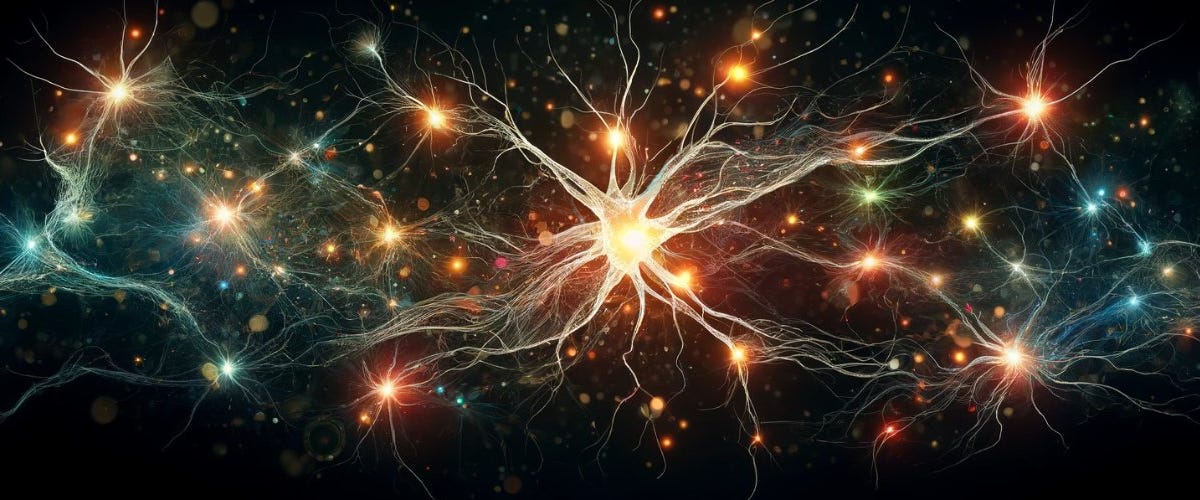The Biosingularity is Near

🌈 Abstract
The article discusses the importance of solving human intelligence as a key to solving all other problems facing humanity. It outlines the current state of intelligence research, the predictive power of intelligence at the individual and national levels, and the potential consequences of failing to enhance human intelligence. The article makes the case for radical human intelligence enhancement across individual, national, and global levels, and introduces the concept of "nooceleration" - the idea of accelerating the scope of rational and self-aware thought. It also discusses the market demand, technological feasibility, and business opportunities in the human intelligence enhancement space, as well as the role of Decentralized Science (DeSci) and the author's plans for Sophia DAO.
🙋 Q&A
[01] Psychometrics 101: What is Intelligence?
1. What is the standard academic definition of intelligence? The standard academic definition of intelligence is "the ability to reason, plan, solve problems, think abstractly, comprehend complex ideas, learn quickly, and learn from experience", as given by Linda Gottfredson.
2. What are the key points about intelligence research summarized in the article? The article summarizes 7 key points about intelligence research:
- Intelligence can be rigorously and reliably measured
- The spread of people across the IQ continuum follows a normal curve
- All cognitive abilities load on a common factor of intelligence known as the general factor, or g
- The g factor is universal across human cultures and even observed in animals
- Heritability of intelligence is around 0.7-0.8
- Intelligence research is the most well replicated branch of the psychological sciences
- Intelligence is strongly predictive of individual life success and positive group outcomes
3. What are the views of the typical intelligence researcher according to the article? The article states that the typical intelligence researcher is a political moderate who strongly supports gay marriage, in contrast to the ideologically loaded critiques of intelligence research.
[02] The g Nexus and the O-Ring
1. What is the "g nexus" and how does it relate to life success? The "g nexus" refers to the positive manifold or correlation between intelligence (g) and virtually all indicators of life success, including income, education, crime, job performance, and political outcomes.
2. How does the predictive power of intelligence differ at the individual and group levels? At the individual level, the correlation between intelligence and life success is around 0.4. However, at the national level, the correlation between national IQ and GDP per capita or general function rises to an amazing 0.7, as the influence of raw intelligence becomes even more dominant when other factors are averaged out.
3. What is the "O-Ring" theory of economic productivity, and how does it relate to national IQ differences? The "O-Ring" theory posits that the economy is a system for generating and trading solutions to problems, with "O-Ring" problems requiring the completion of multiple complicated steps by workers above a competency threshold. Countries with larger "smart fractions" capable of solving these O-Ring problems have more productive economies, which explains why a hairdresser earns five times as much in Belgium as in Brazil.
[03] Escaping the Great Stagnation
1. What are the two main problems with global innovation according to the article? The two main problems are: 1) Innovation is extremely concentrated in the world's richest and smartest countries, and 2) the global "smart fraction" that drives innovation appears to be in absolute decline.
2. What are the likely causes of the decline in innovation and productivity according to the article? The article cites three main causes: 1) the "low-hanging fruit" effect where the problems to be solved become harder over time, 2) the amount of "elite mindpower" available to work on these problems has reached an asymptote and may be in decline, and 3) the accelerating fertility collapse and dysgenic reproduction trends worldwide.
3. How does the article view the role of institutions and economic freedom in the innovation slowdown? The article argues that the decline in innovation is not primarily due to institutional ossification or lack of economic freedom, as global economic freedom has never been higher. The article suggests the problem lies more with the decline in the "smart fraction" of the population.
[04] The Case for Nooceleration
1. What is the author's definition of "nooceleration"? Nooceleration is defined as the idea that the scope of rational and self-aware thought is what should be optimized for on the planet, in contrast to just optimizing the physical world.
2. What are the key reasons the author considers the DAO structure to be well-suited for human intelligence enhancement research? The key reasons are: 1) it has "transhumanist" vibes that repel normie academia, 2) intelligence enhancement is controversial and the cryptosphere is more open to it, 3) it can benefit from an approach-agnostic actor that can sponsor fundamental research and public goods, and 4) nobody else seems to be interested in doing this.
3. What are the author's main goals for Sophia DAO and the planned book "The Biosingularity: The Case for Human Intelligence Enhancement"? The main goals are to build a DAO community and ecosystem to accelerate research and development in human intelligence enhancement, and to expand the current essay into a full-fledged book exploring these ideas in depth.